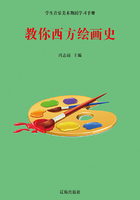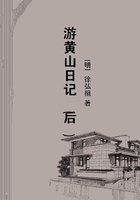The development of Cowperwood as Cowperwood & Co. following his arresting bond venture, finally brought him into relationship with one man who was to play an important part in his life, morally, financially, and in other ways. This was George W. Stener, the new city treasurer-elect, who, to begin with, was a puppet in the hands of other men, but who, also in spite of this fact, became a personage of considerable importance, for the simple reason that he was weak. Stener had been engaged in the real estate and insurance business in a small way before he was made city treasurer.
He was one of those men, of whom there are so many thousands in every large community, with no breadth of vision, no real subtlety, no craft, no great skill in anything. You would never hear a new idea emanating from Stener. He never had one in his life. On the other hand, he was not a bad fellow. He had a stodgy, dusty, commonplace look to him which was more a matter of mind than of body. His eye was of vague gray-blue; his hair a dusty light-brown and thin. His mouth--there was nothing impressive there. He was quite tall, nearly six feet, with moderately broad shoulders, but his figure was anything but shapely. He seemed to stoop a little, his stomach was the least bit protuberant, and he talked commonplaces --the small change of newspaper and street and business gossip.
People liked him in his own neighborhood. He was thought to be honest and kindly; and he was, as far as he knew. His wife and four children were as average and insignificant as the wives and children of such men usually are.
Just the same, and in spite of, or perhaps, politically speaking, because of all this, George W. Stener was brought into temporary public notice by certain political methods which had existed in Philadelphia practically unmodified for the previous half hundred years. First, because he was of the same political faith as the dominant local political party, he had become known to the local councilman and ward-leader of his ward as a faithful soul--one useful in the matter of drumming up votes. And next--although absolutely without value as a speaker, for he had no ideas--you could send him from door to door, asking the grocer and the blacksmith and the butcher how he felt about things and he would make friends, and in the long run predict fairly accurately the probable vote. Furthermore, you could dole him out a few platitudes and he would repeat them. The Republican party, which was the new-born party then, but dominant in Philadelphia, needed your vote; it was necessary to keep the rascally Democrats out--he could scarcely have said why. They had been for slavery. They were for free trade. It never once occurred to him that these things had nothing to do with the local executive and financial administration of Philadelphia. Supposing they didn't? What of it?
In Philadelphia at this time a certain United States Senator, one Mark Simpson, together with Edward Malia Butler and Henry A.
Mollenhauer, a rich coal dealer and investor, were supposed to, and did, control jointly the political destiny of the city. They had representatives, benchmen, spies, tools--a great company. Among them was this same Stener--a minute cog in the silent machinery of their affairs.
In scarcely any other city save this, where the inhabitants were of a deadly average in so far as being commonplace was concerned, could such a man as Stener have been elected city treasurer. The rank and file did not, except in rare instances, make up their political program. An inside ring had this matter in charge.
Certain positions were allotted to such and such men or to such and such factions of the party for such and such services rendered --but who does not know politics?
In due course of time, therefore, George W. Stener had become persona grata to Edward Strobik, a quondam councilman who afterward became ward leader and still later president of council, and who, in private life was a stone-dealer and owner of a brickyard.
Strobik was a benchman of Henry A. Mollenhauer, the hardest and coldest of all three of the political leaders. The latter had things to get from council, and Strobik was his tool. He had Stener elected; and because he was faithful in voting as he was told the latter was later made an assistant superintendent of the highways department.
Here he came under the eyes of Edward Malia Butler, and was slightly useful to him. Then the central political committee, with Butler in charge, decided that some nice, docile man who would at the same time be absolutely faithful was needed for city treasurer, and Stener was put on the ticket. He knew little of finance, but was an excellent bookkeeper; and, anyhow, was not corporation counsel Regan, another political tool of this great triumvirate, there to advise him at all times? He was. It was a very simple matter.
Being put on the ticket was equivalent to being elected, and so, after a few weeks of exceedingly trying platform experiences, in which he had stammered through platitudinous declarations that the city needed to be honestly administered, he was inducted into office; and there you were.
Now it wouldn't have made so much difference what George W.
Stener's executive and financial qualifications for the position were, but at this time the city of Philadelphia was still hobbling along under perhaps as evil a financial system, or lack of it, as any city ever endured--the assessor and the treasurer being allowed to collect and hold moneys belonging to the city, outside of the city's private vaults, and that without any demand on the part of anybody that the same be invested by them at interest for the city's benefit. Rather, all they were expected to do, apparently, was to restore the principal and that which was with them when they entered or left office. It was not understood or publicly demanded that the moneys so collected, or drawn from any source, be maintained intact in the vaults of the city treasury.















